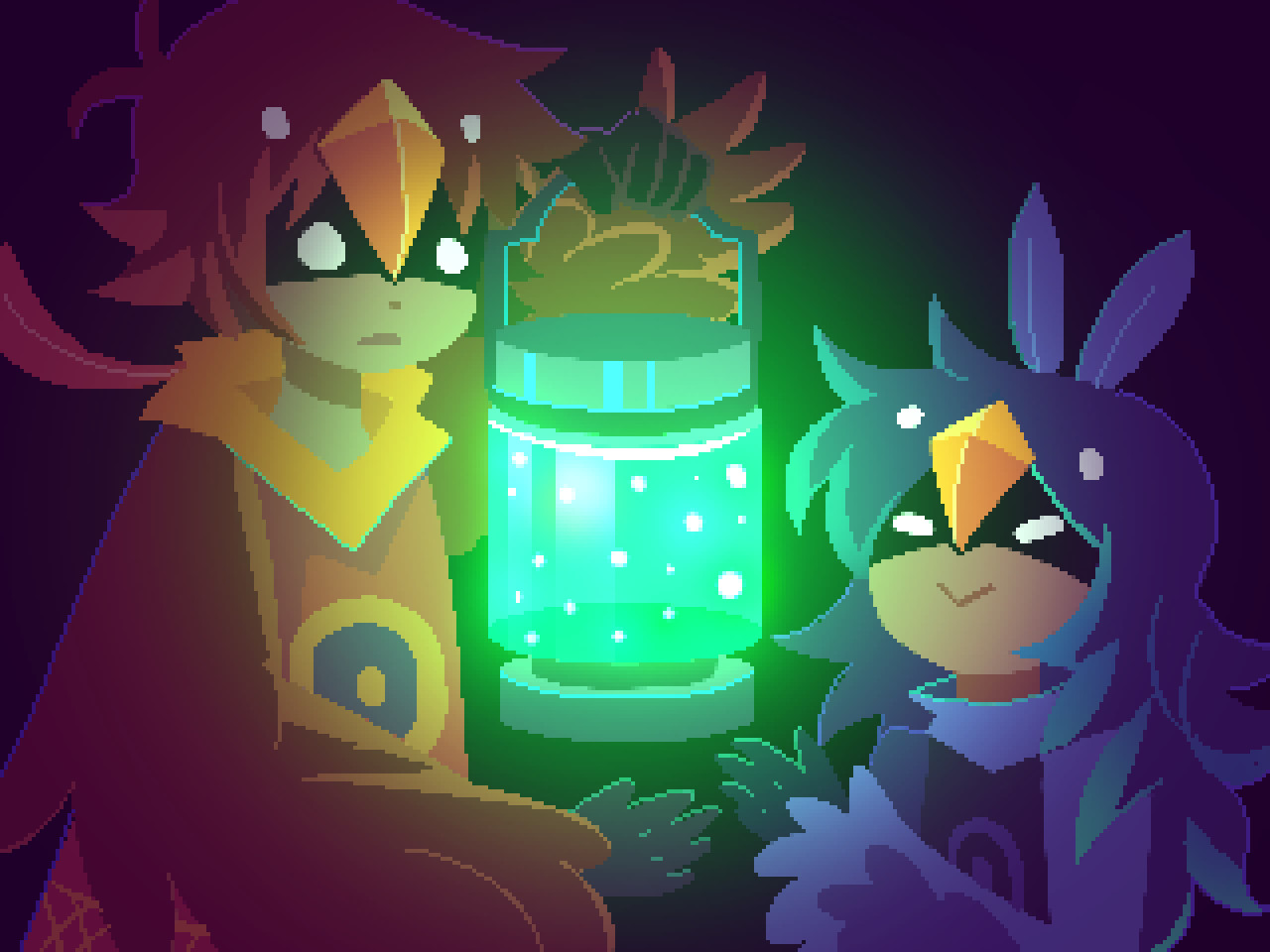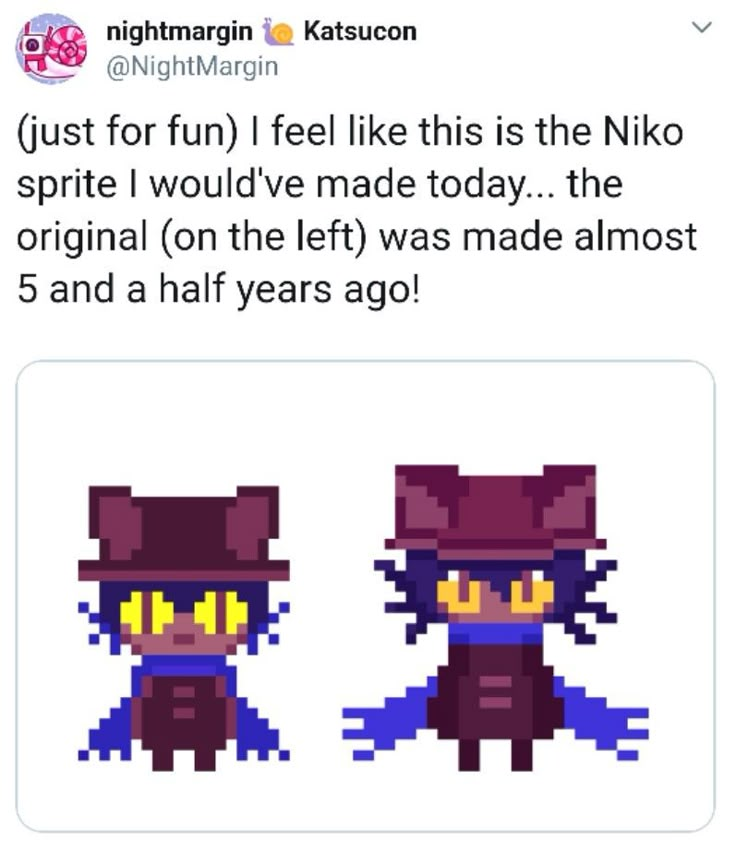Spectacular Info About Is OneShot A Horror Game

Is OneShot a Horror Game? Unpacking the Experience
1. Delving into the Genre Question
So, you're wondering if OneShot, that quirky little adventure game, is actually a horror game in disguise? It's a valid question! On the surface, it looks all cute and pixelated, with a charming protagonist named Niko. But beneath that veneer of sweetness, there's something... unsettling. It's not about jump scares or gore; it's a different kind of dread that creeps in slowly. Think psychological thriller meets puzzle adventure, with a dash of existential crisis thrown in for good measure.
Many who've played OneShot hesitate to label it outright horror. It doesn't rely on typical horror tropes. There aren't any monsters leaping out from dark corners. The fear comes from a deeper place — the realization of the world's fragility, the player's own complicity, and the sheer weight of responsibility placed on your (and Niko's) shoulders. It messes with your head in a way that few overtly scary games manage to do.
Think of it like this: is a suspenseful movie with a building sense of unease but no actual monster a horror film? Some would say no, but the impact, the lasting effect it leaves on your mind, can be just as powerful. OneShot accomplishes something similar. It preys on your emotions, your empathy, and your sense of control (or lack thereof) to create a truly memorable, and yes, at times, genuinely terrifying experience. It's the kind of game that stays with you long after you've "finished" it.
Ultimately, whether you classify OneShot as a horror game is subjective. But dismissing it as simply a lighthearted adventure would be a mistake. It's a game that expertly uses its narrative and mechanics to create a unique atmosphere, one that is steeped in mystery, melancholy, and a subtle, pervasive sense of dread. Prepare to question everything you thought you knew about video games... and yourself!

The Horror R/oneshot
The Psychological Elements at Play
2. Breaking Down the Fear Factors
Okay, so let's dive a little deeper into what makes OneShot so psychologically impactful. Forget chainsaws and jump scares; the game prefers to target your sense of security and control. From the very beginning, the game acknowledges your presence as the player, blurring the lines between the virtual world and reality. This fourth-wall-breaking mechanic is crucial to the experience.
The knowledge that your actions have real consequences within the game's world — and that these consequences can be devastating — is a constant source of tension. You're not just playing a game; you're participating in a story, and your choices matter. This sense of agency, combined with the realization that you might not be able to save everyone, is deeply unsettling. It's like being given the keys to a spaceship but not knowing how to steer it properly.
Furthermore, the game's atmosphere is masterfully crafted to evoke feelings of isolation and vulnerability. The world is dying, and Niko is the only one who can save it (with your help, of course). This burden, coupled with the constant reminders of the impending doom, creates a pervasive sense of unease. It's the kind of dread that simmers beneath the surface, always threatening to boil over.
And then there's the underlying theme of artificial intelligence and sentience. As you interact with the game's characters, you begin to wonder about their true nature. Are they just lines of code, or are they something more? This blurring of the lines between artificial and real further enhances the game's psychological impact, leaving you questioning the very nature of existence. It's a lot to unpack, I know!

The Absence of Traditional Horror Tropes
3. Why It's Not Your Typical Scarefest
Let's be honest; if you're looking for a game with zombies, demons, or blood-soaked corridors, OneShot isn't it. It actively avoids many of the conventions that define the horror genre. There aren't any jump scares designed to make you leap out of your seat (although there are a few moments that might make you gasp). There's no graphic violence or excessive gore. Instead, the game relies on more subtle and insidious methods to create its atmosphere of dread.
This absence of traditional horror elements is actually one of OneShot's greatest strengths. By eschewing the familiar tropes, the game is able to create a truly unique and memorable experience. It's not relying on cheap thrills or shock value. Instead, it's focusing on creating a deeper, more meaningful connection with the player.
Think about it. How many horror games have you played that you've forgotten about within a few weeks? OneShot, on the other hand, is a game that tends to stick with you. It's a game that you'll find yourself thinking about long after you've finished playing it. This is because it's not just trying to scare you; it's trying to make you think.
So, while it may not fit neatly into the traditional horror box, OneShot's ability to evoke feelings of dread, unease, and existential angst is undeniable. It's a different kind of horror, a more subtle and sophisticated kind, but horror nonetheless.

OneShot World Machine Edition Para Nintendo Switch Sitio Oficial De
The Community's Divided Opinion
4. What Players Are Saying
If you spend any time browsing forums or reading reviews, you'll quickly discover that the OneShot community is somewhat divided on the "horror game" question. Some players firmly believe that it's a psychological horror masterpiece, while others argue that it's simply a clever and emotional adventure game with some unsettling elements. The truth, as always, probably lies somewhere in between.
Those who see OneShot as a horror game often point to the game's themes of loss, sacrifice, and the player's own complicity in the world's fate. They argue that the game's atmosphere of dread and the constant sense of impending doom create a genuinely terrifying experience, even without the presence of traditional horror elements.
On the other hand, those who are hesitant to label it a horror game often emphasize the game's heartwarming moments, its charming characters, and its overall message of hope. They argue that the game's positive elements outweigh the more unsettling aspects, making it a more uplifting and ultimately less frightening experience.
Ultimately, whether you consider OneShot a horror game is a matter of personal interpretation. There's no right or wrong answer. But one thing is for sure: it's a game that will stay with you long after you've finished playing it, regardless of what genre you choose to categorize it in. It's an experience that's both thought-provoking and emotionally resonant, and that's something that all players can appreciate.

Pin By Deathrex007 On Oneshot Pixel Art Characters, Indie Games, Rpg
So, Is It Horror or Not? A Final Verdict
5. Drawing a Conclusion (of Sorts)
Alright, so after all that, where do we land on the "Is OneShot a horror game?" debate? The nuanced answer, as with many things in life, is: it depends. It's not horror in the traditional sense. You won't find jump scares or gore, but you will find a creeping sense of unease, a world teetering on the brink of collapse, and a profound questioning of your own role as a player.
OneShot excels at creating a psychological atmosphere. It messes with your expectations, blurs the lines between reality and the game world, and forces you to confront uncomfortable truths about the nature of video games and your relationship with them. That can be pretty terrifying in its own right!
Think of it as horror-adjacent. It borrows elements from the genre — suspense, dread, a sense of helplessness — but uses them in a unique and unexpected way. It's a game that's more likely to leave you feeling thoughtful and introspective than screaming and hiding under your covers. Although, a little bit of both wouldn't be entirely surprising.
In the end, the best way to decide whether OneShot is a horror game for you is to play it yourself. Go in with an open mind, be prepared to be challenged, and don't be surprised if you find yourself feeling a little bit...unsettled. You might just discover a new definition of horror along the way. Just remember to have a nightlight handy... just in case.

FAQ
6. Addressing Common Concerns
We've covered a lot, but you probably still have some questions lingering. Let's tackle some of the most frequently asked questions about OneShot and its genre classification.
Q: Does OneShot have jump scares?A: Not really. There might be a few moments that startle you, but the game primarily relies on atmosphere and psychological elements to create its sense of dread. Think more subtle tension than heart-stopping leaps.
Q: Is OneShot scary for kids?A: It depends on the child. While there's no graphic violence or gore, the game's themes of loss, sacrifice, and existentialism might be too heavy for younger or more sensitive players. Parental discretion is advised.
Q: What other games are similar to OneShot in terms of atmosphere and themes?A: Games like Undertale, Doki Doki Literature Club!, and Ib often get mentioned in the same breath as OneShot. They all share a focus on meta-narrative, emotional storytelling, and challenging player expectations.